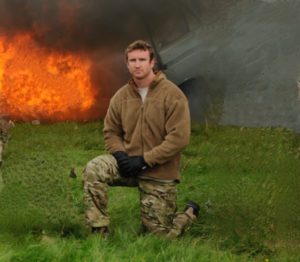Military medical malpractice is a complex issue, and those affected often face a challenging path when seeking justice. One of the key aspects of understanding these cases lies in the role that commanding officers play. Commanding officers (COs) have a unique influence on military healthcare providers, often overseeing aspects of their duties, practices, and accountability. For victims of military medical malpractice, it’s crucial to understand how the involvement of a commanding officer could impact their case.
In this blog, we’ll explore the roles and responsibilities of commanding officers, how they interact with medical staff, and the influence they have in military medical malpractice cases. Whether you’re seeking clarity on your rights or exploring options for a potential case, understanding this dynamic is essential.
What is Military Medical Malpractice?
Military medical malpractice occurs when a healthcare provider in the military fails to provide an adequate standard of care, resulting in harm or injury to a service member or their family. This type of malpractice can involve a range of issues, from surgical errors to misdiagnoses, and even failure to provide necessary treatment.
While civilian medical malpractice cases are typically straightforward, military cases are further complicated by the chain of command and the unique regulations governing military personnel.
The Unique Structure of Military Healthcare
The military operates under a different healthcare system than civilian institutions. Service members receive care from military healthcare providers who are often overseen by a complex hierarchy. This structure can create unique challenges in military malpractice cases:
- Chain of Command: Military medical staff are subject to a strict chain of command, which can impact decision-making processes and the level of care provided.
- Regulations and Protocols: Military healthcare providers must adhere to specific regulations, sometimes limiting their ability to act autonomously, unlike civilian counterparts.
- Commanding Officers’ Role: Commanding officers may have direct or indirect influence over medical staff, potentially affecting their clinical decisions and actions.
The Role of Commanding Officers in Military Healthcare
Commanding officers are responsible for the overall well-being and readiness of the service members under their command. They may not be medical professionals, but they play a pivotal role in the military healthcare system in several ways:
- Oversight and Accountability: Commanding officers are responsible for ensuring that medical personnel within their command adhere to standards and protocols. They may initiate investigations or disciplinary actions if they suspect negligence or misconduct.
- Resource Allocation: COs decide how medical resources, including personnel and equipment, are allocated within their unit. This could impact the quality of care provided, as limited resources might lead to overworked staff and potential oversights in patient care.
- Reporting and Documentation: In the military, commanding officers are often involved in the reporting process of incidents or medical errors. They play a role in documenting events that could become crucial evidence in a malpractice case.
- Decision-Making Influence: Commanding officers have authority over medical staff, which can affect how healthcare providers make decisions. In some cases, COs may influence medical decisions based on mission readiness rather than patient welfare, potentially contributing to malpractice scenarios.
How Commanding Officers Can Impact Military Medical Malpractice Cases
In military medical malpractice cases, the involvement of a commanding officer can significantly impact how the case is handled. Here’s how:
1. Availability of Evidence
Commanding officers often play a role in the documentation and reporting of medical incidents. If they fail to adequately document an incident or withhold information, it can hinder a victim’s ability to gather evidence for their case.
2. Witness Testimonies
COs may be called as witnesses to provide information on the circumstances surrounding the malpractice. They can offer insight into whether protocols were followed and if any external factors contributed to the incident.
3. Influence on Medical Staff
Commanding officers might influence the testimonies of medical staff. In the military, there is often a culture of loyalty and obedience to superiors. As a result, medical staff might be reluctant to speak out against commanding officers or the decisions made under their authority.
4. Chain of Responsibility
COs are often part of the chain of responsibility. In cases where they failed to act on known issues, they could be held accountable. This accountability could strengthen a malpractice case by highlighting systemic issues within the chain of command.
5. Potential Immunity Complications
Military personnel, including commanding officers, sometimes have immunity from certain types of lawsuits. This can complicate matters for victims seeking justice, as it might limit the legal options available against specific individuals or entities involved in the malpractice.
Challenges of Proving Commanding Officer Negligence
Proving the negligence of a commanding officer in military medical malpractice cases can be challenging. Often, these cases require a thorough investigation into the chain of command, documented orders, and the influence exerted over medical decisions. Challenges may include:
- Limited Access to Records: Military records are often classified or otherwise restricted, making it difficult to obtain information needed to prove a commanding officer’s involvement or negligence.
- Immunity Protections: As mentioned earlier, certain legal immunities can protect commanding officers, requiring victims to navigate complex military legal channels.
- Witness Reluctance: Medical personnel and other military staff may be hesitant to testify against their CO, fearing repercussions or harm to their careers.
Navigating Military Medical Malpractice Claims: Steps to Take
If you or a loved one has suffered due to military medical malpractice, understanding the role of commanding officers and the military chain of command is crucial. Here are some steps to consider:
- Consult a Specialized Attorney: Military medical malpractice cases require specialized legal knowledge. An attorney experienced in military law and malpractice can help you understand your rights and guide you through the process.
- Gather Evidence: Collect as much documentation as possible, including medical records, incident reports, and any communications involving commanding officers. Your attorney can help you navigate the process of requesting military records.
- Seek Medical Evaluations: Independent medical evaluations can provide crucial evidence to support your claim, helping to establish the extent of injuries or harm suffered due to malpractice.
- Consider Testimonies: Your attorney may help secure statements from medical personnel who witnessed the incident or were involved in your care. Understanding how COs influence their testimonies can provide insights into the case.
- Understand the Timeline: Military malpractice cases often have strict timelines, known as statutes of limitations. It’s important to act quickly to preserve your right to file a claim.
Conclusion:
Military medical malpractice can have lasting consequences, and pursuing justice is often a complicated and daunting task. However, you don’t have to face this journey alone. At Khawam Ripka LLC, we specialize in military medical malpractice cases, and we understand the unique challenges you face.
If you believe you or a loved one has been a victim of military medical malpractice involving a commanding officer, reach out to us today. Our team of experienced attorneys will provide a comprehensive evaluation of your case and fight to protect your rights. Contact Khawam Ripka LLC now for a consultation and take the first step toward seeking the justice you deserve. Don’t wait—your path to justice starts with a single call.

 Call Now- Open 24/7
Call Now- Open 24/7





